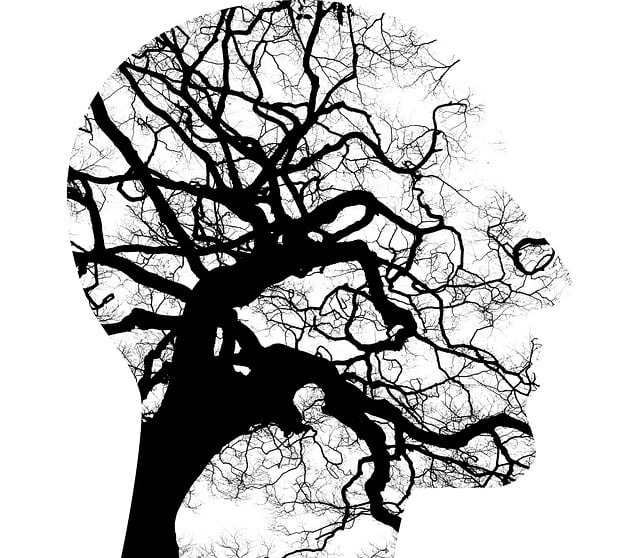Louisville Codependency Therapy emphasizes cultural sensitivity as a key component of effective mental healthcare, recognizing that individuals' cultural backgrounds significantly impact their mental wellness and treatment responses. By integrating cultural awareness and stigma reduction efforts, therapists create inclusive environments that encourage open communication, earlier interventions, and improved outcomes for diverse clients. This approach tailors therapeutic techniques to honor unique cultural perspectives, incorporating practices like mental wellness journaling adapted from traditional backgrounds. Louisville Codependency Therapy's focus on cultural competence fosters trust, strengthens therapist-client relationships, and empowers individuals through their Mind Over Matter Principles, ultimately enhancing holistic mental wellness and accessibility to quality care.
“Cultural sensitivity is a cornerstone of effective mental healthcare, especially in diverse societies like ours. This article explores the profound impact of cultural diversity on mental health and introduces Louisville Codependency Therapy (LCT), a practice that embodies cultural sensitivity.
We’ll delve into strategies for incorporating cultural competence, highlighting how this approach builds trust and enhances treatment outcomes. By understanding different cultural contexts, healthcare providers can offer more personalized and effective support, revolutionizing mental healthcare with empathy at its core.”
- Understanding Cultural Diversity and Its Impact on Mental Health
- Louisville Codependency Therapy: A Sensitized Approach
- Incorporating Cultural Competence in Clinical Practice
- Building Trust and Effective Treatment Plans Through Cultural Sensitivity
Understanding Cultural Diversity and Its Impact on Mental Health

In today’s diverse communities, understanding cultural diversity is paramount in mental healthcare practice. Louisville Codependency Therapy recognizes that mental health issues do not exist in a cultural vacuum; they are deeply intertwined with an individual’s social and cultural context. Each culture carries its unique beliefs, values, and practices regarding mental wellness, which can both influence and shape an individual’s experience of illness and recovery. For instance, some cultures may view mental illness through a spiritual or community lens, emphasizing the importance of family support and collective healing. Others might prioritize self-care routines developed within cultural traditions as essential for maintaining balance.
Addressing cultural sensitivity involves more than just treating symptoms; it requires therapists to be adept navigators in this intricate landscape. By integrating Mental Illness Stigma Reduction Efforts, practitioners can foster environments that encourage open conversations about mental health. This, in turn, can lead to earlier interventions and better outcomes, especially for marginalized communities. Additionally, promoting Self-Care Routine Development for Better Mental Health within a cultural context can be a powerful tool in Depression Prevention, allowing individuals to draw on their inherent cultural resources for resilience and recovery.
Louisville Codependency Therapy: A Sensitized Approach

Louisville Codependency Therapy takes a unique and sensitive approach to addressing complex interpersonal issues. This therapy model recognizes that cultural backgrounds significantly shape individual experiences, behaviors, and responses to trauma. By incorporating cultural awareness into treatment, therapists can create a safer and more inclusive environment for clients from diverse ethnic, racial, and socioeconomic groups.
The Louisville Codependency Therapy approach emphasizes the importance of understanding cultural contexts in mental healthcare. This involves tailoring therapeutic techniques to resonate with specific communities, fostering open communication, and encouraging clients to express their unique perspectives. Through this sensitive practice, therapists aim to bridge cultural gaps, enhance trust, and improve outcomes for individuals seeking support for codependency issues, all while promoting emotional well-being through initiatives like the Mental Wellness Podcast Series Production and Public Awareness Campaigns Development.
Incorporating Cultural Competence in Clinical Practice

Incorporating cultural competence into clinical practice is essential for providing effective Louisville codependency therapy and fostering positive outcomes for diverse clientele. Mental healthcare professionals must recognize and appreciate the impact of cultural background, beliefs, and values on an individual’s mental wellness. By embracing cultural sensitivity, therapists create a safe and non-judgmental space that encourages clients to explore their inner strengths and develop confidence in expressing themselves authentically. This approach ensures tailored support, enhancing the overall therapeutic experience.
For instance, guiding clients through mental wellness journaling exercises can be culturally adapted to incorporate traditional practices from various backgrounds. This strategy not only boosts self-awareness but also strengthens the therapist-client relationship, especially when professionals are open to learning and understanding different cultural contexts. Through these integrated practices, Louisville codependency therapy becomes more inclusive, empowering individuals on their journey towards holistic mental wellness.
Building Trust and Effective Treatment Plans Through Cultural Sensitivity

In mental healthcare, cultural sensitivity is key to building trust and effective treatment plans. By understanding and respecting a client’s cultural background, Louisville Codependency Therapy can create a safe and supportive environment. This approach allows therapists to tailor their methods to align with the client’s values, beliefs, and traditions, fostering a deeper connection and encouraging open communication. When mental health professionals incorporate the Mind Over Matter Principles and focus on resilience building, they empower individuals to navigate challenges with strength and confidence, reflecting the cultural nuances that shape their lives.
Public awareness campaigns development can also play a significant role in promoting cultural sensitivity. Educating both the community and healthcare providers about diverse cultural practices and perspectives ensures that everyone involved in mental healthcare is equipped to offer compassionate, effective care. This holistic approach not only enhances treatment outcomes but also contributes to breaking down barriers and reducing disparities in access to quality mental health services for all individuals.
Cultural sensitivity is a cornerstone of effective mental healthcare, especially in diverse communities. By incorporating cultural competence and understanding, practices like Louisville Codependency Therapy can foster trust and create tailored treatment plans that resonate with individuals from various backgrounds. This approach not only enhances the quality of care but also ensures that every patient receives respectful, sensitive, and ultimately life-changing support.














